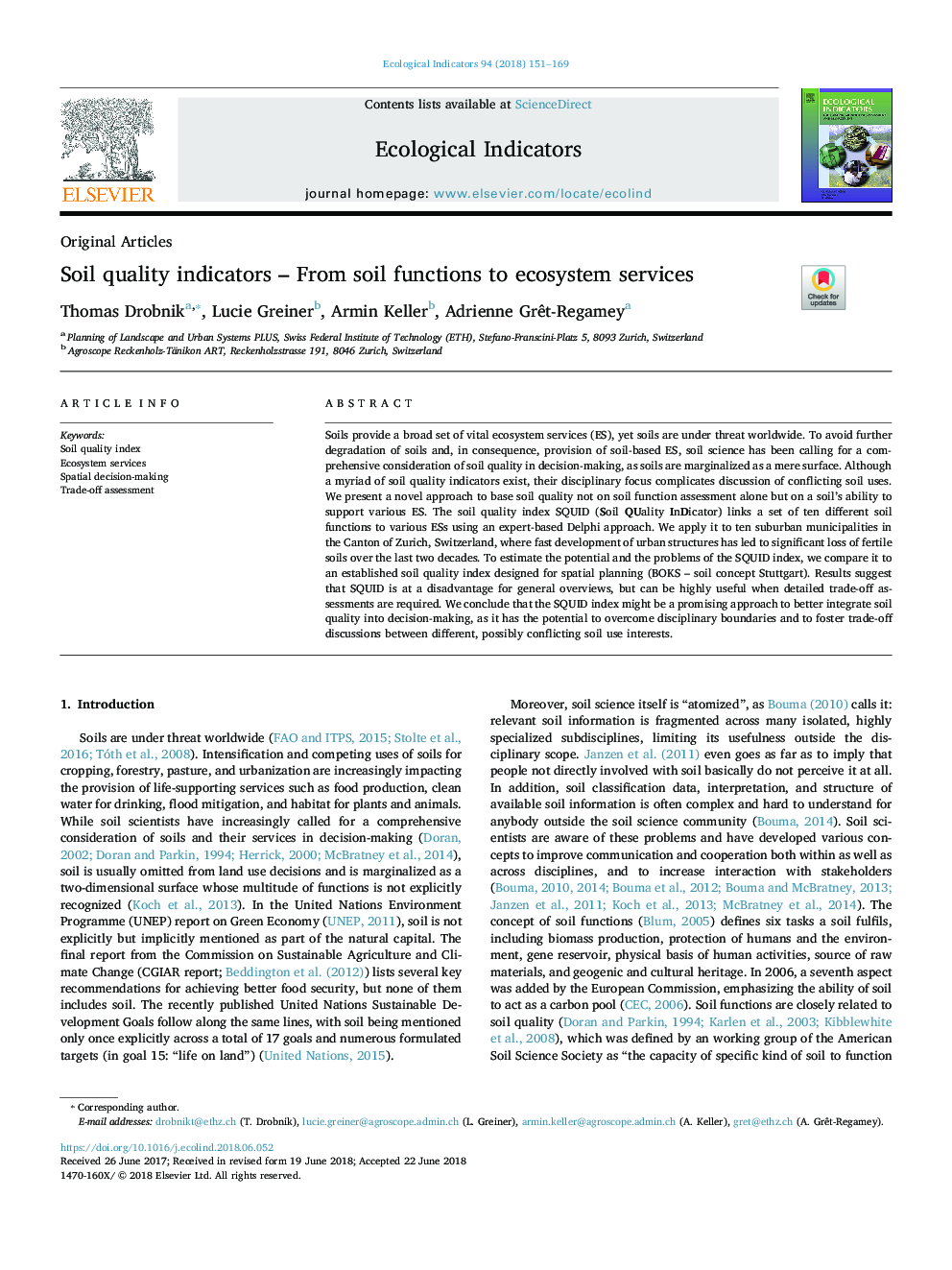| Article ID | Journal | Published Year | Pages | File Type |
|---|---|---|---|---|
| 8845021 | Ecological Indicators | 2018 | 19 Pages |
Abstract
Soils provide a broad set of vital ecosystem services (ES), yet soils are under threat worldwide. To avoid further degradation of soils and, in consequence, provision of soil-based ES, soil science has been calling for a comprehensive consideration of soil quality in decision-making, as soils are marginalized as a mere surface. Although a myriad of soil quality indicators exist, their disciplinary focus complicates discussion of conflicting soil uses. We present a novel approach to base soil quality not on soil function assessment alone but on a soil's ability to support various ES. The soil quality index SQUID (Soil QUality InDicator) links a set of ten different soil functions to various ESs using an expert-based Delphi approach. We apply it to ten suburban municipalities in the Canton of Zurich, Switzerland, where fast development of urban structures has led to significant loss of fertile soils over the last two decades. To estimate the potential and the problems of the SQUID index, we compare it to an established soil quality index designed for spatial planning (BOKS - soil concept Stuttgart). Results suggest that SQUID is at a disadvantage for general overviews, but can be highly useful when detailed trade-off assessments are required. We conclude that the SQUID index might be a promising approach to better integrate soil quality into decision-making, as it has the potential to overcome disciplinary boundaries and to foster trade-off discussions between different, possibly conflicting soil use interests.
Keywords
Related Topics
Life Sciences
Agricultural and Biological Sciences
Ecology, Evolution, Behavior and Systematics
Authors
Thomas Drobnik, Lucie Greiner, Armin Keller, Adrienne Grêt-Regamey,
